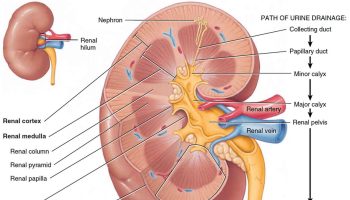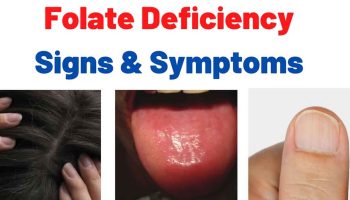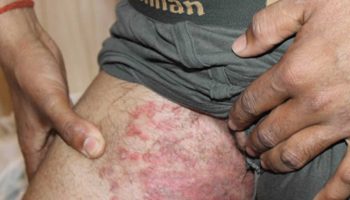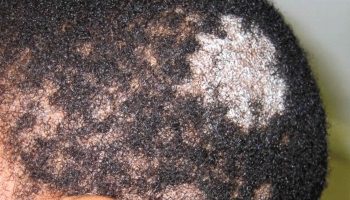Contents
What is a kleptomaniac
Kleptomania is an impulse control disorder in which an individual experiences recurrent episodes of compulsive stealing to steal items not needed for personal use or monetary value. Stealing commonly occurs in the form of shoplifting. The compulsions to steal are ego dystonic and upsetting to the patient 1. If you have an impulse control disorder, you have difficulty resisting the temptation or drive to perform an act that’s excessive or harmful to you or someone else. Many people with kleptomania live lives of secret shame because they’re afraid to seek mental health treatment. Usually help is sought only when confronted by the legal consequences of the impulsive behaviors. Although there’s no cure for kleptomania, treatment with medication or talk therapy (psychotherapy) may help to end the cycle of compulsive stealing.
Since its introduction into the psychiatric lexicon as a diagnostic term in 1838 2, kleptomania has been the subject of intense controversy and debate. In question is whether it represents a medical disorder or a form of illegal and deviant behavior more akin to sociopathy. The Diagnostic and Statistical Manual of Mental Disorders, Fourth Edition – Text Revision, (DSM-IV-TR) 3 includes kleptomania with the impulse control disorders not elsewhere classified, alongside pathological gambling, trichotillomania (compulsive hair pulling), pyromania (compulsive fire setting) and intermittent explosive disorder. Diagnostic and Statistical Manual of Mental Disorders, Fourth Edition – Text Revision defines kleptomania as a recurrent failure to resist impulses to steal objects that are not needed for personal use or for their monetary value. Like other impulse control disorders, kleptomania is characterized by an anxiety-driven urge to perform an act that is pleasurable in the moment but causes significant distress and dysfunction. Careful attention should be given to distinguishing kleptomania from antisocial personality disorder. Unlike the latter disorder, kleptomania is characterized by the presence of guilt and remorse and the lack of theft motives such as monetary gain, personal use, stealing to impress someone, or stealing to support a drug habit 1.
Table 1. Diagnostic criteria for kleptomania
| Recurrent failure to resist impulses to steal objects that are not needed for personal use or for their monetary value. |
| Increasing sense of tension immediately before committing the theft. |
| Pleasure, gratification, or relief at the time of committing the theft. |
| The stealing is not committed to express anger or vengeance and is not in response to a delusion or hallucination. |
| The stealing is not better accounted for by conduct disorder, a manic episode, or antisocial personality disorder. |
The prevalence of kleptomania in the general population is approximated at 0.6 percent. In those arrested for shoplifting, the prevalence of kleptomania is 3.8 to 24 percent. The female to male ratio is estimated at 3:1. The onset is usually in adolescence, and the average age for presentation for treatment is 35 years for women and 50 years for men 4, 5.
Kleptomania is rarely brought to medical attention voluntarily. Patients usually present for treatment by legal mandate due to repeated shoplifting. Men are more likely to be sent to prison instead of being referred to treatment 5.
Kleptomania and other impulse control disorders seem to be more prevalent among those with psychiatric disorders. In a study of 204 psychiatric patients admitted for inpatient treatment, 31 percent of the patients were identified with a current impulse control disorder and 7.8 percent with kleptomania 6. A report that identified 11 patients with kleptomania compared them to a group of patients with alcoholism and to a group of non-psychotic psychiatric patients. The patients with kleptomania had significantly higher levels of impulsivity that distinguished them from both comparison groups. The patients with kleptomania were also found to have high rates of substance abuse and mood disorders 7.
If you suspect a close friend or family member may have kleptomania, gently raise your concerns with your loved one. Keep in mind that kleptomania is a mental health condition, not a character flaw, so approach your loved one without blame or accusation.
It may be helpful to emphasize these points:
- You’re concerned because you care about your loved one’s health and well-being.
- You’re worried about the risks of compulsive stealing, such as being arrested, losing a job or damaging a valued relationship.
- You understand that, with kleptomania, the urge to steal may be too strong to resist just by “putting your mind to it.”
- Treatments are available that may help to minimize the urge to steal and live without addiction and shame.
If you need help preparing for this conversation, talk with your doctor. He or she may refer you to a mental health professional who can help you plan a way of raising your concerns without making your loved one feel defensive or threatened.
The pathophysiology of kleptomania is unknown. Psychoanalytic theories link compulsive stealing to childhood trauma and neglectful or abusive parents, and stealing may symbolize repossessing the losses of childhood 5. Kleptomania has also been linked to psychosexual issues such as sexual repression and suppression 5. Neuropsychiatric factors are also thought to play a role in kleptomania. The disorder appears to be highly associated with mood disorders and anxiety spectrum disorders 8. Reports of kleptomania responding to selective serotonin reuptake inhibitors (SSRIs) suggests a common pathophysiology with mood and anxiety disorders 9.
Kleptomania may also be regarded as a form of addictive behavior and has been shown to be associated with other substance use disorders (e.g., alcohol and nicotine) 7. Naltrexone, an opiate antagonist used to treat addictive behaviors, has been shown to reduce kleptomania symptoms 10. A double-blind, placebo-controlled study of 25 patients who were administered naltrexone showed significant improvement in kleptomania 11. Topiramate, an anticonvulsant drug, has been shown to be effective in impulse control disorders, and recently topiramate demonstrated efficacy in treating binge eating 12. Again, this has been extrapolated to kleptomania with encouraging results in small case series 13. Additionally, there are case reports in the literature documenting kleptomania responding to lithium, valproate, trazodone, and electroconvulsive therapy 9.
Impulse control disorders can present as neuropsychiatric sequelae of head trauma and traumatic brain injury 14. New onset kleptomania has been reported in two cases of closed head trauma 15. Brain disorders, such as epilepsy 16 and frontotemporal dementia 2 have been reported to cause kleptomania. Kleptomania has also been reported as paradoxical side effect of SSRIs in three patients 17.
Various psychotherapeutic techniques alone and in combination with psychotropic medications have been reported to improve compulsive stealing 5. Desensitization was effective in a small study of three patients with impulse control disorders: two shop-lifters and one binge eater.21 In a study of 28 patients with compulsive buying (a condition closely related to impulse control disorders), cognitive behavioral therapy (CBT) was found to be effective in reducing the compulsions to buy.
Kleptomania complications
Left untreated, kleptomania can result in severe emotional, family, work, legal and financial problems. For example, you know stealing is wrong but you feel powerless to resist the impulse, so you may be wracked by guilt, shame, self-loathing and humiliation. And you may be arrested for stealing. You may otherwise lead a moral, upstanding life and be confused and upset by your compulsive stealing.
Other complications and conditions associated with kleptomania may include:
- Other impulse-control disorders, such as compulsive gambling or shopping
- Alcohol and substance misuse
- Personality disorders
- Eating disorders
- Depression
- Bipolar disorder
- Anxiety
- Suicidal thoughts, suicide attempts and suicide.
Kleptomania causes
What causes kleptomania
The cause of kleptomania is not known. Several theories suggest that changes in the brain may be at the root of kleptomania. More research is needed to better understand these possible causes, but kleptomania may be linked to:
- Problems with a naturally occurring brain chemical (neurotransmitter) called serotonin. Serotonin helps regulate moods and emotions. Low levels of serotonin are common in people prone to impulsive behaviors.
- Addictive disorders. Stealing may cause the release of dopamine (another neurotransmitter). Dopamine causes pleasurable feelings, and some people seek this rewarding feeling again and again.
- The brain’s opioid system. Urges are regulated by the brain’s opioid system. An imbalance in this system could make it harder to resist urges.
Risk factors for kleptomania
Kleptomania is considered uncommon. However, some people with kleptomania may never seek treatment, or they’re simply jailed after repeated thefts, so some cases of kleptomania may never be diagnosed. Kleptomania often begins during the teen years or in young adulthood, but can start in adulthood or later. About two-thirds of people with known kleptomania are women.
Kleptomania risk factors may include:
- Family history. Having a first-degree relative, such as a parent or sibling, with kleptomania, obsessive-compulsive disorder, or an alcohol or other substance use disorder may increase the risk of kleptomania.
- Having another mental illness. People with kleptomania often have another mental illness, such as bipolar disorder, anxiety disorder, an eating disorder, substance use disorder or a personality disorder.
Kleptomania prevention
Because the cause of kleptomania isn’t clear, it’s not yet known how to prevent it with any certainty. Getting treatment as soon as compulsive stealing begins may help prevent kleptomania from becoming worse and prevent some of the negative consequences.
Kleptomania symptoms
Kleptomania symptoms may include:
- Inability to resist powerful urges to steal items that you don’t need
- Feeling increased tension, anxiety or arousal leading up to the theft
- Feeling pleasure, relief or gratification while stealing
- Feeling terrible guilt, remorse, self-loathing, shame or fear of arrest after the theft
- Return of the urges and a repetition of the kleptomania cycle
Features
People with kleptomania typically exhibit these features or characteristics:
- Unlike typical shoplifters, people with kleptomania don’t compulsively steal for personal gain, on a dare, for revenge or out of rebellion. They steal simply because the urge is so powerful that they can’t resist it.
- Episodes of kleptomania generally occur spontaneously, usually without planning and without help or collaboration from another person.
- Most people with kleptomania steal from public places, such as stores and supermarkets. Some may steal from friends or acquaintances, such as at a party.
- Often, the stolen items have no value to the person with kleptomania, and the person can afford to buy them.
- The stolen items are usually stashed away, never to be used. Items may also be donated, given away to family or friends, or even secretly returned to the place from which they were stolen.
- Urges to steal may come and go or may occur with greater or lesser intensity over the course of time.
Kleptomania diagnosis
When you decide to seek treatment for symptoms of possible kleptomania, you may have both a physical and psychological evaluation. The physical evaluation can determine if there may be any medical causes triggering your symptoms.
Kleptomania is diagnosed based on your signs and symptoms. Because it’s a type of impulse control disorder, to help pinpoint a diagnosis, your doctor may:
- Ask questions about your impulses and how they make you feel
- Review a list of situations to ask if these situations trigger your kleptomania episodes
- Have you fill out psychological questionnaires or self-assessments
- Use the criteria in the Diagnostic and Statistical Manual of Mental Disorders (DSM-5), published by the American Psychiatric Association.
The existing literature indicates that kleptomaniacs often report lack of self-esteem, a difficult childhood and marital conflicts 18, which may just be one of the manifestations of borderline personality disorder 19 and score poorly on socialization but well on impulsivity and novelty seeking 20.
Kleptomaniacs have high rates of substance abuse and mood disorders 21, as well as anxiety disorders 22. The extent to which obsessive compulsive disorder (OCD) and kleptomania co-occur is not well understood. Rates of co-occurring OCD in samples of kleptomaniacs have ranged from 6.5% 22 to 60% 23. A recent study 24 reported that kleptomaniacs who seek treatment have a higher prevalence of personality disorders compared to a nonclinical population.
Early literature suggested that kleptomania particularly affected women of high social and economic status so much so that scientists assumed its aetiology as stemming from the female reproductive system. It is not that scientists did not describe cases of male and lower class kleptomaniacs in the 19th century, but the evidence made no headway as the media was more interested in socially prominent women thieves who used kleptomania as a defence in court trials. Newer studies have also shown a female preponderance 25, with an early age of onset of stealing in females 23 and people with comorbid personality disorders 26.
Kleptomania treatment
Although fear, humiliation or embarrassment may make it hard for you to seek treatment for kleptomania, it’s important to get help. Kleptomania is difficult to overcome on your own. Without treatment, kleptomania will likely be an ongoing, long-term condition.
Treatment of kleptomania typically involves medications and psychotherapy, or both, sometimes along with self-help groups. However, there’s no standard kleptomania treatment, and researchers are still trying to understand what may work best. You may have to try several types of treatment to find what works well for you.
Medications
There’s little scientific research about using psychiatric medications to treat kleptomania. And there is no FDA-approved medication for kleptomania. However, certain medications may help, depending on your situation and whether you have other mental health disorders, such as depression or substance misuse.
Your doctor may consider prescribing:
- An addiction medication called naltrexone, an opioid antagonist, which may reduce the urges and pleasure associated with stealing
- An antidepressant — specifically a selective serotonin reuptake inhibitor (SSRI):
- Fluoxetine (Prozac), most commonly used
- Fluvoxamine (Luvox)
- Paroxetine (Paxil)
- Sertraline (Zoloft)
- Other medications or a combination of medications
If medication is prescribed, ask your doctor, mental health professional or pharmacist about potential side effects or possible interactions with any other medications.
Psychotherapy
A form of psychotherapy called cognitive behavioral therapy helps you identify unhealthy, negative beliefs and behaviors and replace them with healthy, positive ones. Cognitive behavioral therapy may include these techniques to help you control kleptomania urges:
- Covert sensitization, in which you picture yourself stealing and then facing negative consequences, such as being caught
- Aversion therapy, in which you practice mildly painful techniques, such as holding your breath until you become uncomfortable, when you get an urge to steal
- Systematic desensitization, in which you practice relaxation techniques and picture yourself controlling urges to steal
Avoiding relapses
It’s not unusual to have relapses of kleptomania. To help avoid relapses, be sure to stick to your treatment plan. If you feel urges to steal, contact your mental health professional or reach out to a trusted person or support group.
Coping and support
You can take steps to care for yourself with healthy coping skills while getting professional treatment:
- Stick to your treatment plan. Take medications as directed and attend scheduled therapy sessions. Remember, it’s hard work and you may have occasional setbacks.
- Educate yourself. Learn about kleptomania so that you can better understand risk factors, treatments and triggering events.
- Identify your triggers. Identify situations, thoughts and feelings that may trigger urges to steal so you can take steps to manage them.
- Get treatment for substance abuse or other mental health problems. Your substance use, depression, anxiety and stress can feed off each other, leading to a cycle of unhealthy behavior.
- Find healthy outlets. Explore healthy ways to rechannel your urges to steal or shoplift through exercise and recreational activities.
- Learn relaxation and stress management. Try such stress-reduction techniques as meditation, yoga or tai chi.
- Stay focused on your goal. Recovery from kleptomania can take time. Stay motivated by keeping your recovery goals in mind and reminding yourself that you can work to repair damaged relationships and financial and legal problems.
Support for loved ones
If your loved one is being treated for kleptomania, make sure you understand the details of the treatment plan and actively support its success. It may be helpful to attend one or more therapy sessions with your loved one so that you’re familiar with the factors that seem to trigger the urge to steal and the most effective ways to cope.
You may also benefit from talking with a therapist yourself. Recovering from an impulse control disorder is a challenging, long-term undertaking — both for the person with the disorder and those closest to him or her. Make sure you’re taking care of your own needs with the stress-reduction outlets that work best for you, such as exercise, meditation or time with friends.
Self-help groups
People with kleptomania may benefit from participating in self-help groups based on 12-step programs. Even if you can’t find a group specifically for kleptomania, you may benefit from attending Alcoholics Anonymous or other addiction meetings. Such groups don’t suit everyone’s tastes, so ask your mental health professional about alternatives.
- Talih FR. Kleptomania and Potential Exacerbating Factors: A Review and Case Report. Innovations in Clinical Neuroscience. 2011;8(10):35-39. https://www.ncbi.nlm.nih.gov/pmc/articles/PMC3225132/[↩][↩]
- Goldman MJ. Kleptomania: making sense of the nonsensical. Am J Psychiatry. 1991;148:986–996. https://www.ncbi.nlm.nih.gov/pubmed/1853988[↩][↩]
- American Psychiatric Association Diagnostic and Statistical Manual of Mental Disorders, Fourth edition, Text Revision. Washington, DC: American Psychiatric Association; 2000.[↩][↩]
- Aboujaoude E, Gamel N, Koran L. Overview of kleptomania and phenomenological description of 40 patients. J Clin Psychiatry. 2004;6:224–247. https://www.ncbi.nlm.nih.gov/pmc/articles/PMC535651/[↩]
- Sadock BJ, Kaplan HI, Sadock VA. Synopsis of Psychiatry, Tenth Edition. Philadelphia, PA: Lippincott Williams & Wilkins; 2007.[↩][↩][↩][↩][↩]
- Grant JE, Levine L, Kim D, Potenza MN. Impulse control disorders in adult psychiatric inpatients. Am J Psychiatry. 2005;162:2184–2188. https://www.ncbi.nlm.nih.gov/pubmed/16263865[↩]
- Bayle FJ, Caci H, Millet B, Richa S, Olie J. Psychopathology and comorbidity of psychiatric disorders in patients with kleptomania. Am J Psychiatry. 2003;160:1509–1513. https://www.ncbi.nlm.nih.gov/pubmed/12900315[↩][↩]
- McElroy SL, Pope HG, Jr, Hudson JI, et al. Kleptomania: a report of 20 cases. Am J Psychiatry. 1991;148:652–657. https://www.ncbi.nlm.nih.gov/pubmed/2018170[↩]
- Grant JE. Understanding and treating kleptomania: new models and new treatments. Isr J Psychiatry Relat Sci. 2006;43:81–87. https://www.ncbi.nlm.nih.gov/pubmed/16910369[↩][↩]
- Grant JE, Kim SW. An open-label study of naltrexone in the treatment of kleptomania. J Clin Psychiatry. 2002;63:349–356. https://www.ncbi.nlm.nih.gov/pubmed/12000210[↩]
- Grant JE, Kim SW, Odlaug BL. A double-blind, placebo-controlled study of the opiate antagonist, naltrexone in the treatment of kleptomania. Biol Psychiatry. 2009;65:600–606. https://www.ncbi.nlm.nih.gov/pubmed/19217077[↩]
- Leombruni P, Lavagino L, Fassino S. Treatment of obese patients with binge eating disorder using topiramate: a review. Neuropsychiatr Dis Treat. 2009;5:285–392. https://www.ncbi.nlm.nih.gov/pmc/articles/PMC2714287/[↩]
- Dannon PN. Topiramate for the treatment of kleptomania: a case series and review of the literature. Clin Neuropharmacol. 2003;26:1–4. https://www.ncbi.nlm.nih.gov/pubmed/12567156[↩]
- McAllister TW. Neuropsychiatric sequelae of head injuries. Psychiatr Clin North Am. 1992;15:395–413. https://www.ncbi.nlm.nih.gov/pubmed/1603732[↩]
- Aizer A, Lowengrub K, Dannon PN. Kleptomania after head trauma: two case reports and combination treatment strategies. Clin Neuropharmacol. 2004;27:211–215. https://www.ncbi.nlm.nih.gov/pubmed/15602100[↩]
- Kaplan Y. Epilepsy and kleptomania. Epilepsy Behav. 2007;11:474–475. https://www.ncbi.nlm.nih.gov/pubmed/17905665[↩]
- Kindler S, Dannon PN, Iancu I, et al. Emergence of kleptomania during treatment for depression with serotonin selective reutake inhibitors. Clin Neuropharmacol. 1997;20:126–129. https://www.ncbi.nlm.nih.gov/pubmed/9099464[↩]
- Goldman MJ. Far Hills, NJ: New Horizon Press; 1998. Kleptomania: The Compulstion to Steal – What Can Be Done.[↩]
- McElroy SL, Hudson JI, Pope HG, Keck PE. Kleptomania: clinical characteristics and associated psychopathology. Psychol Med. 1991;21:93–108. https://www.ncbi.nlm.nih.gov/pubmed/2047510[↩]
- Grant JE, Kim SW. Temperament and early environmental influences in kleptomania. Compr Psychiatry. 2002;43:223–8. https://www.ncbi.nlm.nih.gov/pubmed/11994842[↩]
- Baylé FJ, Caci H, Millet B, Richa S, Olié JP. Psychopathology and comorbidity of psychiatric disorders in patients with kleptomania. Am J Psychiatry. 2003;160:1509–13. https://www.ncbi.nlm.nih.gov/pubmed/12900315[↩]
- Grant JE. Family history and psychiatric comorbidity in persons with kleptomania. Compr Psychiatry. 2003;44:437–41. https://www.ncbi.nlm.nih.gov/pubmed/14610719[↩][↩]
- Presta S, Marazziti D, Dell’Osso L, et al. Kleptomania: clinical features and comorbidity in an Italian sample. Compr Psychiatry. 2002;43:7–12. https://www.ncbi.nlm.nih.gov/pubmed/11788913[↩][↩]
- Grant JE. Co-occurrence of personality disorders in persons with kleptomania: a preliminary investigation. J Am Acad Psychiatry Law. 2004;32:395–8. https://www.ncbi.nlm.nih.gov/pubmed/15704625[↩]
- Aboujaoude E, Gamel N, Koran LM. Overview of Kleptomania and Phenomenological Description of 40 Patients. Prim Care Companion J Clin Psychiatry. 2004;6:244–7. https://www.ncbi.nlm.nih.gov/pmc/articles/PMC535651/[↩]
- Hoertel N, Dubertret C, Schuster JP, Le Strat Y. Sex differences in shoplifting: results from a national sample. J Nerv Ment Dis. 2012;200:728–33. https://www.ncbi.nlm.nih.gov/pubmed/22850311[↩]





